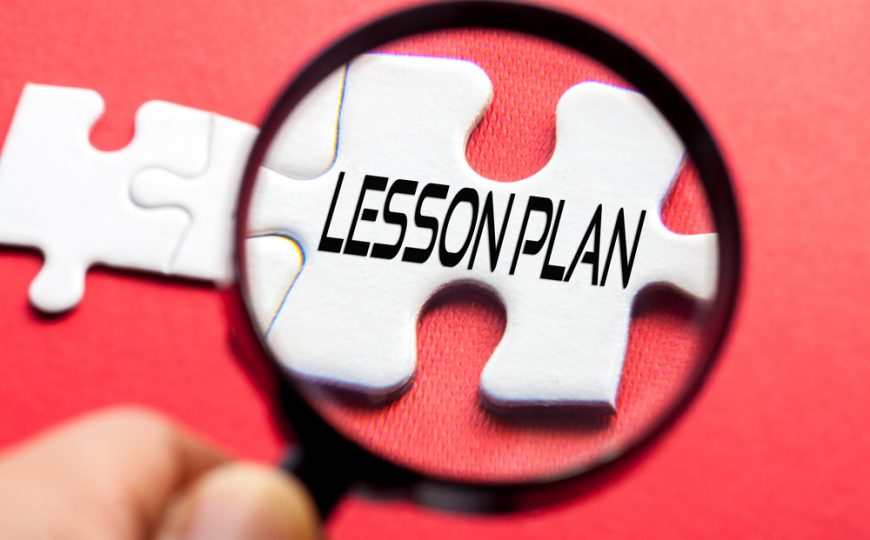While last time we talked about the importance of action, for a plan without action is merely a dream, it is equally important to appreciate that action without a plan can also be disastrous (and something we would diagnose as impulsive). That is why nearly half my lesson plan is focused on the pre-planning part. The following items of the paradigm make it a well-thought-out plan.
Goal rationale
Objective rationale
Research
Relevance
If you have been following us until now, you know that having a curriculum is not a good enough rationale for what you teach (see What to Teach). Your students need a good reason to engage in the learning. “Relevance” is where you identify why it is important to the student to learn this topic or item. As mentioned in Of Fidget Spinners and Fake Education, today people are used to instant gratification. You cannot expect a typical 9th grader to be sold on “it will help you with college.” That is too far down the road to motivate them to engage in any learning they find tedious. This is even more true for younger students. ![]() They need to have meaning in their learning. Think about how many students only cram for tests the night before, rather than reviewing the material all throughout the semester in anticipation of the inevitable final.
They need to have meaning in their learning. Think about how many students only cram for tests the night before, rather than reviewing the material all throughout the semester in anticipation of the inevitable final.
To have a clear answer on how the lesson you are preparing is relevant you need to start with an understanding of the goal for the year and its rationale. Why is it important for your students to know American History? Biology? Geometry? Not someday, but rather now. I am sure you can see how this will not change the curriculum driven content, but rather the delivery and perhaps focus of your lesson.
Once you clearly understand your goal and its purpose you then want to do your research. Research may include studying the “best” way to teach something, where to focus or how to identify when something has gone wrong, as well as knowing more about the content than you will be teaching to your students. We have also previously discussed in Don’t Be A Pedagogue, that you want to begin with an understanding of how you do the task: whether it is remembering all the places and dates in history, how to do math functions or even how to hold a pencil properly for writing. It is only by doing your research that you will know acceptable methods of holding the pencil, as well as unacceptable methods that require referral to the right professional (an occupational therapist in this case). You will notice that the examples above are all differing types of learning, facts to be memorized vs. functions to be understood and applied vs. a motor skill. It is precisely because of their core differences that each gets learned in a different way and thus must be taught differently.
Objective in this context is the goal of the individual lesson. Once you have a good rational goal and have done your research you will have an easier time identifying viable (as defined in: Are you a Dreamer or a Visionary?) objectives with a strong rationale to support each one.
![]() Your lesson must incorporate the relevance, to your students, of the content being taught.
Your lesson must incorporate the relevance, to your students, of the content being taught.
Sometimes a course may not be relevant to all your students. If you utilize the steps outlined above, you can make it relevant. An example of this is the Aural Rehabilitation course that I teach to senior level undergraduate college students. First you should appreciate two things about the class, 1) the course is designed for audiology students and 2) I have only one token audiology student in my class every semester, the rest of the students are speech pathology majors.
Goal & rationale: The accrediting agency and teaching institutions want the undergraduate program to give a taste of both professions to all students. Furthermore, both these professionals will be working with a lot of hearing-impaired people. However, each discipline is tasked to help the hearing-impaired in very different ways. Thus, this is a required course for both sets of students. However, the speech students will not be fitting hearing aids or cochlear implants and so they have limited interest in much of that content.
Rationale: All the students have to be able to work with those who have hearing impairment, given its high prevalence. I began teaching the course by choosing a required text that would make a good reference book for the speech students. One that focused less on the technicalities of technology and more on the principles of rehabilitation as it applies to the hearing-impaired population.
Relevance: I make sure throughout the course to teach what is relevant for everyone to know about the technology involved such as putting on hearing aids, turning them on, basic trouble shooting, etc., rather than hearing aid fittings which would only be relevant to the audiology student.
Rationale: Should a therapist need to treat a hearing-impaired person they want to be sure the necessary amplification devices are working properly so their client can hear their instruction. [Lest you feel bad for the audiology student, I always explain to them that they will learn how to fit hearing aids at the doctoral level (required) in the multiple classes on amplification.]
Research: Habilitation vs. Rehabilitation, principles of lesson/session planning, Learning, Communication, Remediation
Rationale: The point of this type of treatment is to improve communication. This requires an understanding of normal and abnormal communication, as well as the causes and treatment (remediation), which must be cause dependent to be effective. I also needed to determine how best to organize the content in a way that is most useful to my students– for this I decided to use general principles as the objectives of the lessons.
Objective: My main focus in the course is on the principles of communication, miscommunication and remediation. For each principle, I use examples specific to both those with a hearing impairment and those with a speech or language impairment (Relevance).
![]() Pick one subject you teach. Can you change anything about what you teach or the way in which you teach it to make it more relevant.
Pick one subject you teach. Can you change anything about what you teach or the way in which you teach it to make it more relevant.
I am reminded of a story of a clinician who had to pick reading material for a client. She chose one about a day at the beach… the client was a nun. Was this the most relevant article our clinician could have chosen for our client?
Best,
![]()



